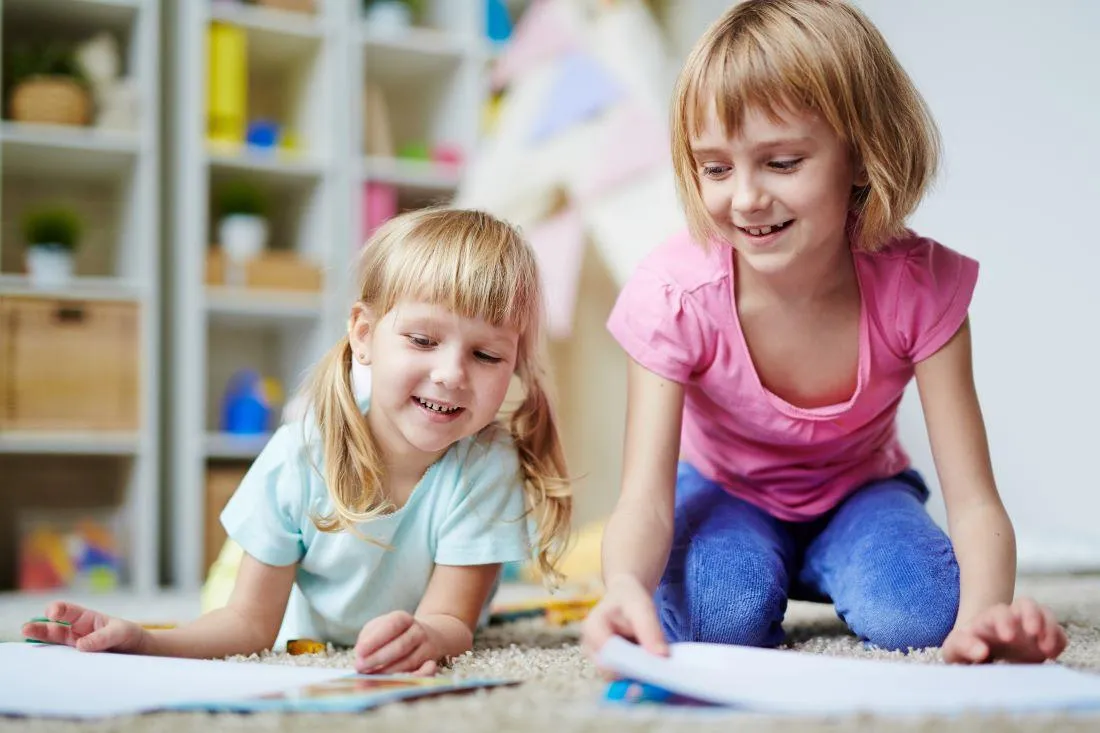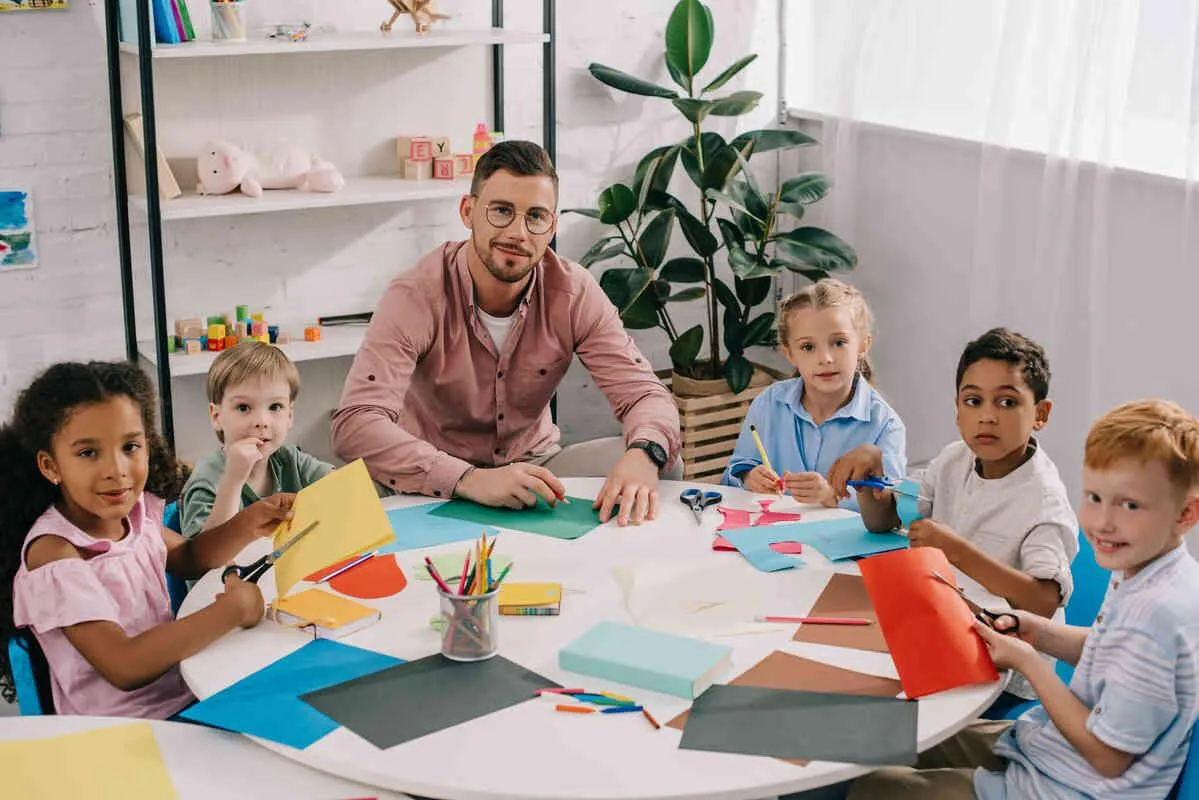
Family Owned and Operated
for 40+years
At Sugar N Spice Daycare and Kindergarten, we recognize that every child is different. Because of this, we go above and beyond to ensure your child receives one-on-one assistance in all early learning activities. We also have an open-door policy for all early learning programs, which means that our phenomenal teachers will keep you updated on your child’s achievements and milestones every step of the way.
CLASSES
Our classes are carefully crafted to meet the development needs of the each and every child. Our educators and support staff are dedicated and thoroughly trained.
Infant Care
Learn more about our infant day care. Under our care, your child will not only develop crucial life skills but also receive the dietary and lifestyle changes needed to stay happy and healthy.
Early Learning
Discover why early learning programs are so important for your child. Whether your child is 6-weeks-old or just entering kindergarten, there’s a place for them at our child care center.
Preschool
Prepare your child for school by enrolling them in a preschool education program. We follow Alabama’s state guidelines to ensure your child for kindergarten readiness
MEET THE TEACHERS
“Our children are our living letters to the world.”- Margaret Mead
Stay in the know with
Our Blogs and Resources

10 Fun & Educational Daycare Activities to Keep Kids Happy, Engaged & Learning in Birmingham, AL
At Sugar N Spice Day Care & Kindergarten in Birmingham, AL, we believe every day should spark curiosity and joy. Our engaging daycare activities do more than fill time; they nurture confidence, creativity, and lifelong learning. Through play-based experiences, children build essential skills while having a blast with friends.
Daycare centers create a sense of community for children, where they can practice essential social skills like sharing, taking turns, and cooperating with others. The structured daycare activities are tailored to each child’s developmental stage, ensuring they are both challenged and supported in ways that promote confidence and independence.
Daycare centers play a critical role in your child’s development by providing structured daycare activities that encourage social interaction, creativity, problem-solving, and more.
Whether they’re creating a colorful craft or solving a puzzle with friends, these moments of interaction nurture their emotional intelligence, helping them to build empathy and teamwork. When kids are engaged in activities that capture their imagination, they’re not only having fun but also building essential skills that will serve them well as they grow.
Every activity is a learning opportunity, and each game or project helps to lay the groundwork for future success in school and life.
Why Engaging Daycare Activities Matter
At Sugar N Spice Day Care & Kindergarten in Birmingham, AL, we know that every playful moment is also a powerful learning opportunity. The right daycare activities don’t just fill a child’s day, they shape how little learners think, feel, and connect with the world around them.
Engaging, age-appropriate play builds far more than smiles. It encourages children to:
Develop strong social skills through sharing, cooperating, and working as a team.
Strengthen cognitive abilities as they explore patterns, solve problems, and make creative decisions.
Grow emotionally, learning empathy and confidence through pretend play and storytelling.
Enhance physical coordination, from fine-motor control in arts and crafts to gross-motor skills during outdoor games.
Every activity at Sugar N Spice is intentionally designed by caring teachers who understand that curiosity fuels growth. By combining structure with joyful discovery, we help children master early milestones while nurturing independence and a lifelong love of learning.
That’s why our daycare activities in Birmingham are more than fun they’re the foundation of your child’s future success.
1. Creative Daycare Arts & Crafts for Early Learners
Materials: Paper plates, crayons, glue sticks, glitter, child-safe scissors
Best for Ages: 3–5 years
Arts and crafts are a cornerstone of daycare activities because they encourage creativity and self-expression. Through painting, drawing, sculpting, and crafting, children explore their imagination in ways that help them better understand the world around them.
Whether they’re finger-painting a bright sun or crafting a paper plate mask, they’re building confidence and discovering how to express their unique ideas.
These activities are also great for developing fine motor skills. Handling paintbrushes, cutting paper, and gluing shapes helps strengthen the muscles in their hands and fingers, which are crucial for later skills like writing.
In our daycare, we set up dedicated art stations where kids can use various materials like crayons, paints, glitter, and paper to create their masterpieces.
One of the most exciting aspects of arts and crafts is the freedom to explore new textures and colors. Kids love mixing paints to see what shades they can create or layering stickers to make a collage.
This process sparks creativity and teaches them to think critically about how they want their project to look and feel.
Learning Benefit: Builds fine-motor coordination and creativity while encouraging children to express their individuality through art.
2. Outdoor Daycare Activities & Nature Exploration in Birmingham
The Joy of Outdoor Adventures
Materials: Buckets, magnifying glasses, chalk, small nets, garden tools
Best for Ages: 2–5 years
Outdoor play is crucial for children’s physical development and mental well-being. Activities like running, climbing, and exploring nature help them develop gross motor skills and provide a healthy outlet for their energy.
We organize outdoor adventures such as nature walks, playground time, and garden exploration. For instance, during a nature walk, children might observe and collect leaves, rocks, and insects, learning about their environment while enjoying the fresh air.
Learning Benefit: Strengthens gross motor skills and curiosity while helping kids connect with nature and learn about their environment.
3. Puzzles & Problem-Solving Games for Cognitive Growth
Building Critical Thinking Skills
Materials: Wooden puzzles, shape sorters, matching cards, stacking blocks
Best for Ages: 3–6 years
Puzzles and problem-solving games are fantastic for developing cognitive skills and critical thinking. These activities challenge children to use logic and problem-solving strategies.
We use a variety of puzzles and games that range from simple jigsaw puzzles to more complex brain teasers. For example, children might work on puzzles that involve matching shapes or solving riddles, which can enhance their ability to think critically and solve problems.
Learning Benefit: Develops logical thinking, patience, and persistence as children learn to solve problems independently.
4. Fine Motor Skills Daycare Activities
Mastering the Art of Small Movements
Materials: Play-dough, child-safe scissors, beads, lacing cards, tweezers
Best for Ages: 3–5 years
Fine motor skills are essential for everyday tasks such as writing, buttoning clothes, and using utensils. Activities that involve manipulating small objects help children develop these skills.
We incorporate activities like play-dough modeling and cutting practice to enhance fine motor development. For instance, children might use play-dough to roll, squish, and shape different objects, or practice cutting with child-safe scissors to create patterns and shapes.
Learning Benefit: Improves hand-eye coordination and prepares little hands for writing and self-care skills like buttoning and tying shoes.
5. Fun Science Experiments for Curious Kids
Exploring the Wonders of Science
Materials: Clear cups, water, small toys, food coloring, sponges, rocks
Best for Ages: 3–6 years
Science experiments are a fantastic way to ignite curiosity and foster a love for learning in young children. One of the key benefits of science experiments is that they provide children with the opportunity to engage in active learning. Instead of passively receiving information, children are encouraged to ask questions, make predictions, and test their hypotheses.
This process of inquiry and experimentation helps them develop a deeper understanding of scientific principles. It also fosters a sense of wonder about the natural world.
One of our favorite science experiments is the classic "sink or float" activity. This simple yet fascinating experiment helps children explore concepts of buoyancy and density.
To conduct this experiment, fill a container with water and provide children with a variety of objects, such as a toy boat, a rock, a plastic bottle, and a sponge. Ask the children to predict whether each object will sink or float when placed in the water. Then, let them test their predictions and observe the results.
As they explore, they will discover that objects made of different materials and shapes behave differently in water. This hands-on experience helps children understand the concept of density and introduces them to the basics of physical science.
Learning Benefit: Encourages curiosity and introduces early STEM thinking as children make predictions and explore cause and effect.
💬 Want to see these activities in action? Visit our Birmingham daycare or schedule a tour today your child’s next adventure in learning awaits!
6. Storytelling & Puppet Play for Language Development
Bringing Stories to Life
Materials: Puppets, storybooks, craft sticks, felt fabric, markers
Best for Ages: 3–5 years
Storytelling and puppet shows are excellent for enhancing language skills and fostering imagination. These activities help children develop their communication skills and encourage them to use their creativity.
We use puppets and interactive storytelling to captivate children’s attention and encourage them to participate. Children might act out their favorite stories or create new adventures with puppet characters, which can be a delightful way to engage them in language and storytelling.
Learning Benefit: Builds vocabulary, imagination, and communication skills while helping kids express emotions in creative ways.
7. Fun Math Activities for Preschoolers at Daycare
Making Math Enjoyable
Materials: Counting bears, number cards, buttons, colored blocks
Best for Ages: 3–6 years
Introducing math in a fun and engaging way is essential for developing a positive attitude towards numbers and problem-solving. We incorporate a variety of interactive math activities that make learning enjoyable and relevant to everyday life.
One of our favorite activities is math games that involve counting, sorting, and simple arithmetic. For example, children might play a game where they count the number of blocks in a tower they build. Another game could involve sorting colorful buttons by size or color.
These activities not only reinforce math concepts but also help children develop fine motor skills and attention to detail.
Another engaging activity is using manipulatives, such as counting bears or number cards, to help children visualize and understand basic math operations like addition and subtraction.
Learning Benefit: Strengthens number recognition and logical reasoning through hands-on, play-based learning.
8. Dress-Up & Role-Play: Building Confidence Through Imagination
Exploring Imagination Through Play
Materials: Costumes, hats, pretend doctor kits, aprons, toy phones
Best for Ages: 3–5 years
Dress-up and role-play activities offer a magical gateway into a world of imagination and creativity for young children. By stepping into different roles and personas, children explore various scenarios, experiment with social interactions, and develop a range of skills that will benefit them throughout their lives.
When children engage in dress-up and role-play, they are not merely having fun; they are also learning valuable life skills. These activities encourage them to use their imagination, express themselves, and understand different perspectives.
For instance, when a child pretends to be a doctor, they might role-play taking care of a stuffed animal patient. This not only fosters empathy but also helps them learn about the roles and responsibilities associated with different professions.
Learning Benefit: Promotes empathy and confidence as children experiment with real-world roles and social interactions.
9. Scavenger Hunts for Exploration & Teamwork
The Thrill of the Hunt
Materials: Printable scavenger lists, baskets, clipboards, pencils
Best for Ages: 3–6 years
Scavenger hunts are a delightful way to captivate children's imaginations while promoting learning through exploration and discovery. A scavenger hunt typically involves children searching for specific items or completing various challenges based on a list of clues or descriptions.
These hunts can be tailored to fit any environment, whether it’s inside the classroom, outside in the playground, or even around the home. The flexibility of scavenger hunts makes them an ideal activity for fostering a wide range of skills in young learners.
To start, you might organize a scavenger hunt around a particular theme, such as colors, shapes, or seasonal items. For instance, a color-themed scavenger hunt might involve giving children a list of different colors and asking them to find objects that match each color.
As they search, they might find a red ball, a blue book, and a green leaf. This activity not only helps children learn to identify and name colors but also encourages them to pay close attention to their surroundings and think critically about the items they find.
Learning Benefit: Enhances observation skills and teamwork while fostering excitement and discovery through play.
10. Alphabet Clothespin Game for Letter Recognition
Learning Letters with a Twist
Materials: Clothespins, printed letter cards, markers, small baskets
Best for Ages: 3–5 years
The Alphabet Clothespin Activity is a creative and interactive way to help young children master their ABCs while having fun. To begin, you will need a set of clothespins and letter cards. The clothespins can be decorated with colorful stickers or paint to make them visually appealing, and the letter cards should feature uppercase and lowercase letters, each printed and easy to read.
The goal of the activity is to have children match each clothespin with the corresponding letter card. Start by laying out the letter cards on a table or the floor, creating a visual reference for the children.
Next, give each child a set of clothespins, each marked with a different letter. As they pick up a clothespin, they must identify the letter on it and then find the matching letter card.
Once they’ve found the correct card, they can clip the clothespin onto it. This reinforces the connection between the letter and its visual representation. Through this process, children practice letter recognition and improve their ability to distinguish between different letters.
Learning Benefit: Reinforces letter recognition and fine-motor control, setting the foundation for early reading success.
Next Step
Daycare plays a vital role in your child’s early development, offering opportunities for learning, growth, and fun. By incorporating engaging daycare activities like creative arts, outdoor play, puzzles, and more, you can help your child stay happy and develop essential skills. At Sugar N Spice Day Care & Kindergarten, we strive to provide a variety of activities that make every day an exciting adventure for your child.
If you’re interested in learning more about how we keep kids happy and engaged at Sugar N Spice, or if you have any questions about our programs, call us at (205) 822-8581. We’d be delighted to share more about our exciting daycare activities and how they benefit your child’s growth and learning.
Enroll Your Child Today
Sugar N Spice Day Care & Kindergarten is proudly accepting new enrollees. Call our day care center today to hear more about our early childhood education opportunities or to schedule a tour.

2026 © Sugar N Spice Day Care & Kindergarten, LLC, All rights reserve
Privacy Policy | Terms and Conditions
Powered by Kyrios Systems
